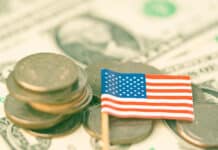
Late July news of the Federal Reserve (Fed) increasing interest rates another 0.75% and a second negative quarter of economic growth (GDP) has created an uncertain environment for investors going forward. Adding to these concerns is China’s economic slowdown and Europe’s energy shock.
Stephen Dover, Chief Market Strategist, at the Franklin Templeton Investment Institute presents the Franklin Templeton mid-year Macro Perspectives, where the economists from the firm discuss whether a stagflation (inflation plus slowing growth) scenario can be avoided, and where investors might find opportunity—or at least temporary shelter.
Below are some key themes the firm’s economists are watching closely:
Painful US landing?: June’s annualized 9.1% US inflation print and the latest report of two quarters of negative economic growth have stirred the markets. The Fed wants to bolster its credibility as an inflation fighter perhaps more than its concern of causing a recession. If the Fed doesn’t do enough, inflation might remain high—too much and the economy could move to recession, if it hasn’t already. Higher prices to consumers increase the risk of further inflation and a wage-price spiral that ironically can cause additional inflation.
Shallow recession: Forward-looking economic indicators tell us that inflation may have peaked. If this occurs and the Fed interprets the economic data effectively, it can avoid overshooting and increasing the risk of a major recession.
Also read: Value Has Returned to High Yield
US dollar appreciates: The strength of the US dollar since the Fed started hiking in mid-March has created additional commodity-related inflation for the economies in Europe, Japan and emerging markets. For now, this dynamic favors the United States because commodities are priced in dollars and imports are less expensive, which should help lower inflation.
Europe’s energy shock: A risk to consider is that Russia might cut off Europe’s oil and gas supplies. This could send Europe into further inflation and a deeper recession in 2022, while also driving global energy prices higher. This would likely increase inflation in the United States and might cause the Fed to further increase interest rates.
China and COVID-19: China’s need to impose more lockdowns plus its struggling property sector could mean slower global growth this year.
The outlook for the rest of the year is complicated. And yet, this environment is also creating dislocations that provide investment opportunities across capital markets.
Globally, sovereign bond yields have drifted upwards toward pre-pandemic levels.
Our investment teams see opportunity in corporate bonds across the credit and maturity spectrum that are starting to yield more than corresponding equity dividend yields. There are also opportunities in emerging market debt.

































